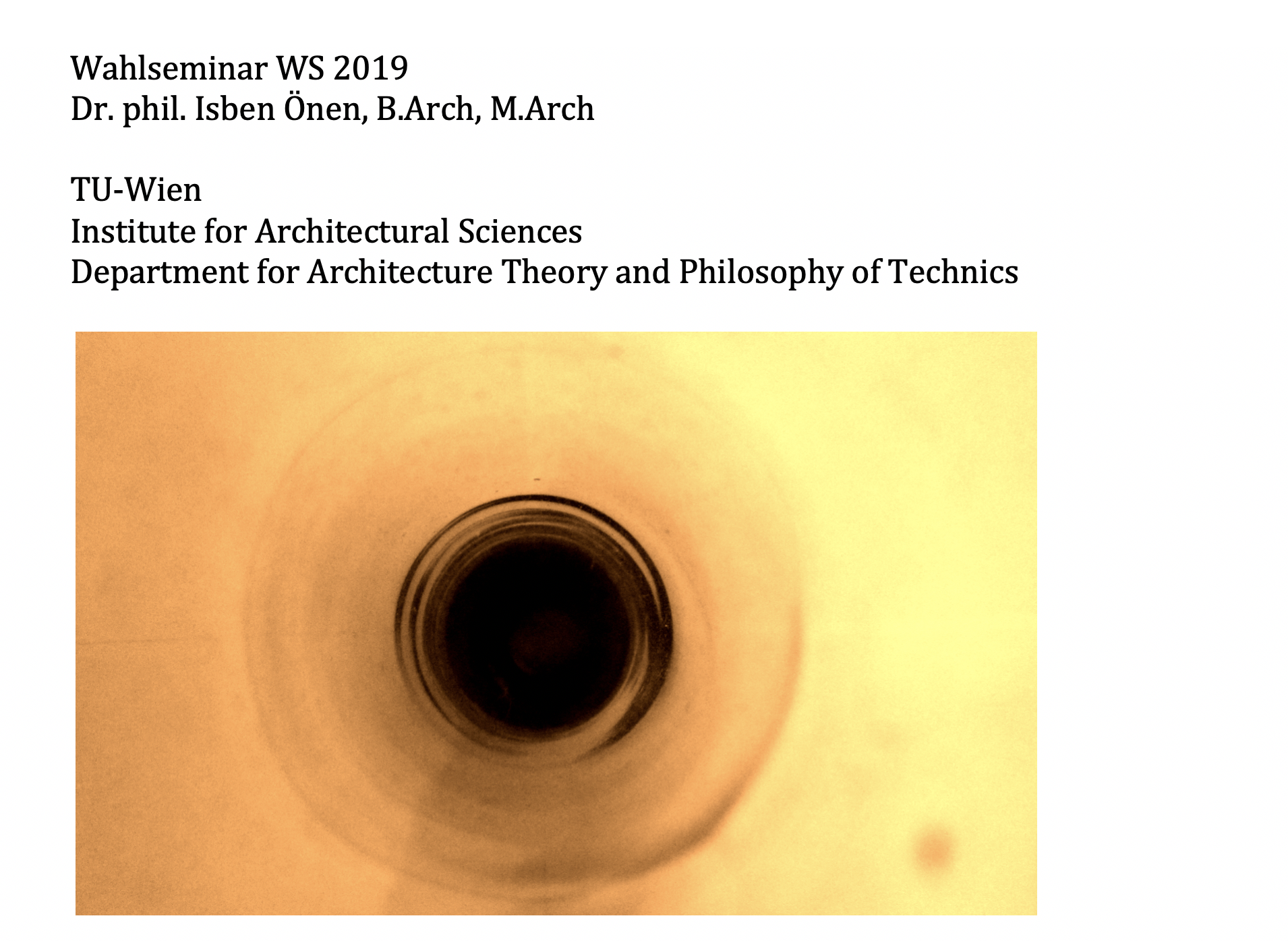After successful completion of the course, students are able to work with texts (writing and research), and can distinguish between academic and journalistic writing.They are aware of the correct handling of quotation and bibliography, basic principles of library and internet research, as well as primary forms of argumentation. Participants are be able to perceive, structure, and organize a specific topic in such a way that it can be thoroughy discussed in a seminar paper.

Parasite
Attunement to the Ambiguity of the Invisible and Imperfect
What? A polycentric seminar scrutinizing the concept of parasite, rethinking the boundaries of aurality and spatiality. Dwelling on the metaphor of orbital movement, it allows participants to follow interdisciplinary paths through philosophy, literature, architecture, and music. The path never remains the same and the continuous questioning becomes a perpetuum mobile.
In Lucian’s The Parasite,Simon explains a dazzled Tychiades that not only the survival of the parasite but also the “art” of being parasitic depends on the continuous exercise of knowledge. It is through this dependence on a daily diligence that differentiates it from other arts. As the dialogue continues pleasure, happiness, and virtue are amongst others that Lucian brings forth. Whether social or biological, parasitism generates multiple dualities: structure and agent; existing and utopia; host and guest -Combes asks if it is the host or the parasite that in reality becomes the subject of exploitation-; self and other; visible and invisible; perfect and imperfect.
In the realm of the aural, some languages refer to the parasite as an interruption: a noise that temporarily blocks flawless communication. Within this polycentric setting one of the questions to be raised would be how to locate the concept of parasite in realm of the spatial?
How? The seminar dwells on the tripartite structure of thinking, reading, and expressing. Accompanied by reading and presenting text clusters in groups, participants are expected to raise individual questions laying the foundations of a structured research process. An intellectual and physical displacementthrough two fieldtrips is also amongst the aims: a visit to the Arnold Schönberg Center and a wandering with biologist Ken Luzynski. A brain-and-earstorming session with a guest musicologist/composer to discuss “noise” and how the aural relates to the spatial will be part of the seminar.
Two writing tasks are foreseen: a fable and seminar paper.
Why? Outcomes of this seminar could be set forth as a set of "awareness," starting by perceiving the overarching importance of theory. As active contributors to the seminar participants get accustomed to theory in a-temporally and contextually-polycentric layout. On the one hand, confronting clusters of ideas and learning how to mobilize them throughout the process of research, on the other hand, being able to transform this process of critical thinking to a novel synthesis without compromising creativity. Scheduled fieldtrips and meeting guest scholars aim participants to become aware of the importance of intellectual and spatial surroundings as inputs. Through a selected reader list and its group presentations participants get the opportunity to practice individual and group-working skills.
First meeting: Tuesday, October 8th, 2019 at 16:00
Place: Seminarraum der Architekturtheorie, Wiedner Hauptstr. 7, Stiege 2, 1. Stock; Tuesdays, from 16:00 to 18:00
Please consider the plagiarism guidelines of TU Wien when writing your seminar paper:
Directive concerning the handling of plagiarism (PDF)